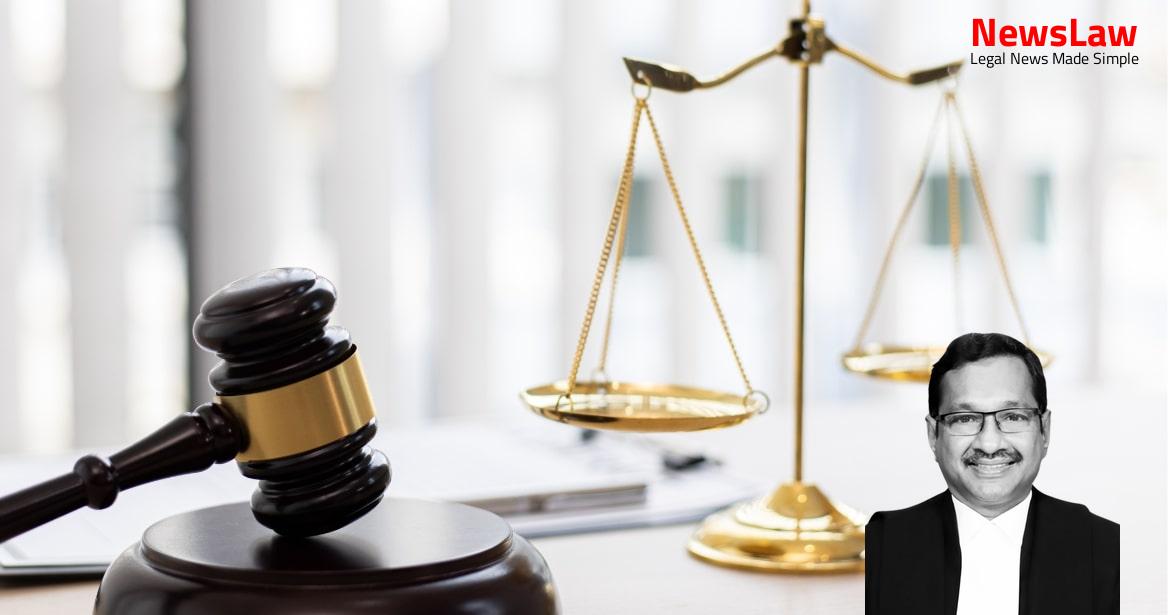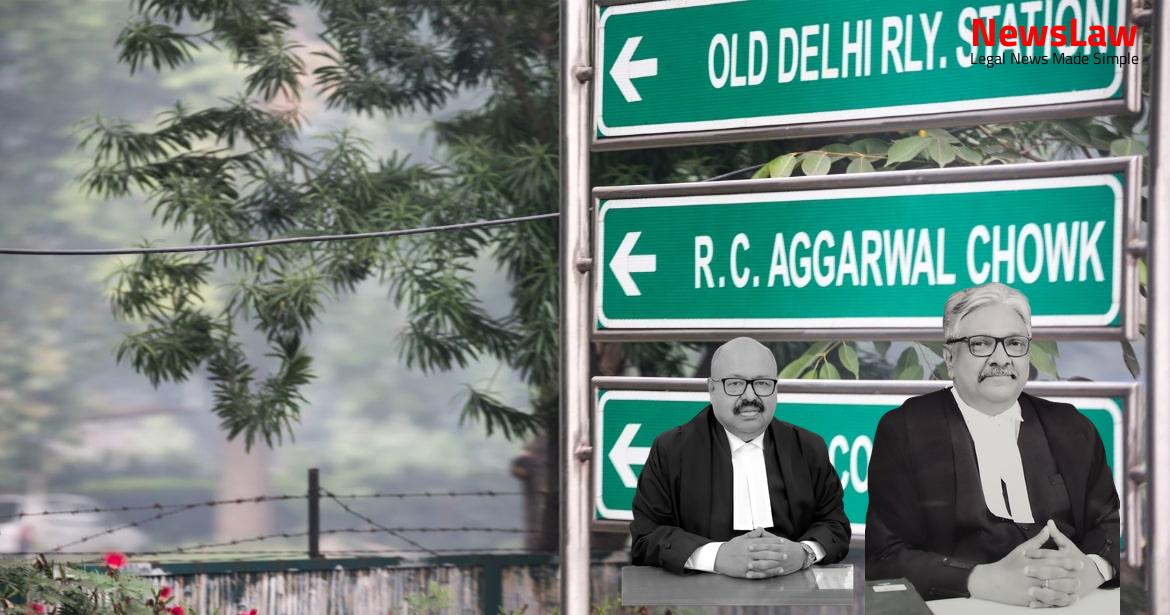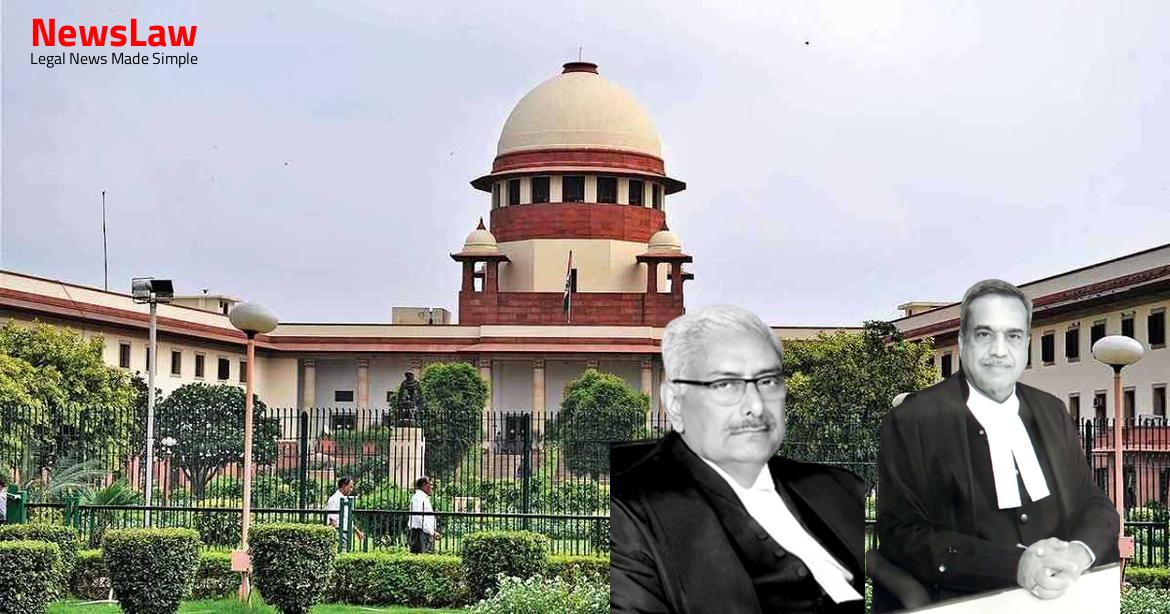Explore how the court emphasized the need for strict adherence to procedural rules in auction sales, ensuring fairness and protection for all parties involved. The detailed legal analysis sheds light on the rights of auction purchasers, underlining the significance of procedural compliance to maintain the integrity of execution proceedings.
Facts
- Despite repeated requests, the Respondent Trust did not comply, leading the owners to file an execution petition in 1991.
- Property measuring 7000 sq. yards was sold to the Appellant via auction in 1992 for Rs.22.65 lakhs.
- Various objections were raised by the Trust, including issues around land allocation and compensation.
- The objections were dismissed, and the sale was upheld in favor of the Appellant.
- The Respondent Trust failed to provide evidence or list witnesses in their objections.
- Multiple court proceedings and appeals took place over the years regarding the sale and objections.
- Ultimately, the Executing Court upheld the sale, and the matter was brought to the Supreme Court through various appeals.
- The Respondent Trust’s application to set aside the sale was rejected due to lack of evidence and non-payment of required amounts.
- There were delays and complications in the execution process spanning over three decades.
- The High Court set aside the judgments of the Executing Court and the First Appellate Court.
- High Court observed lack of application of mind by Executing Court regarding compliance with Order XXI Rule 17 and Order XXI Rule 66 of the Code.
- The High Court emphasized that the attached property’s price must correspond to the decretal amount as per statutory provisions.
- A balance was required to be maintained between the rights of the Judgment Debtor and the auction purchaser under Order XXI Rule 90 of the Code.
- The Court upheld the objections raised by the Appellant regarding the competency of the person filing the objections.
Also Read: Supreme Court Judgment on Single Till Mechanism for HRAB Calculation: A Comprehensive Analysis
Arguments
- The objections of the decree holder could not be entertained at a belated stage.
- Reference to Order XXI Rule 90(3) of the Code of Civil Procedure was made to establish that the Respondent Trust needed to prove substantial injury caused by material irregularity or fraud.
- The judgment in Saheb Khan v. Mohd. Yousufuddin and Others was referred to define irregularity and nullity, emphasizing that objections that can be waived do not qualify.
- Citing the judgment in Ashwin S. Mehta & Anr. vs. Custodian & Ors., it was argued that any third-party interest created is not disputable, and sale certificate issuance in appellant’s favor did not result in property enjoyment due to prolonged litigation.
- The courts below were justified in not reversing their findings as the decree holder did not raise objections during execution proceedings or issuance of proclamation of sale under Order XXI Rule 66.
- No application to set aside a sale can be entertained post the proclamation of sale date as per Order XXI Rule 90(3).
- The interest of a bona fide purchaser for value in an auction sale, as illustrated in Sadashiv Prasad Singh v. Harendar Singh, is protected even if the decree is set aside.
- Delay of three decades referenced to Sugandhi (Dead) by L.Rs. & Ors. v. P. Rajkumar.
- Mere delay in disposal of the case should not hinder court from doing justice.
- High Court found material irregularities and illegalities causing substantial injury to the Respondent Trust.
- Non-disclosure at the time of filing under Order XXI Rule 66 – land in Khasra No.271 also sold at public auction, when only land in Khasra No.272 should have been sold.
- Procedural lapses by Respondents in following up the case.
- Public property should not be auctioned for errors of errant officers.
Analysis
- The Respondent Trust failed to lead any evidence despite various opportunities provided.
- The Respondent Trust did not comply with the requirement of Order XXI Rule 89 by depositing the decretal amount along with 5 per cent of the auction amount.
- The auction purchaser proved due proclamation and conduct of the auction sale at the spot.
- The property was described clearly in the sale certificate, and the identification was not a problem.
- The Respondent Trust did not object to various stages of the execution proceedings, showing a lack of participation.
- The Court confirmed the auction, and no fraud or collusion was proven to set it aside.
- The property ultimately fetched a higher price, which cannot be held against the Appellant who participated in the process and offered a fair price.
- The property to be sold, or where a part of the property is sufficient to satisfy the decree, such part, must be fairly and accurately described.
- If the property to be sold is an interest in an estate or part of an estate paying revenue to the government, the revenue assessed upon the estate or part must be mentioned.
- Any encumbrance to which the property is liable must be disclosed.
- The amount for which the sale is ordered should be stated.
- Every other relevant detail that the court considers material for a purchaser to know in order to judge the nature and value of the property must be included in the proclamation.
- An application for an Order for sale under this rule should be accompanied by a statement containing the necessary details, signed and verified properly.
- If required, the court may summon individuals to ascertain the information for the proclamation and may examine them and ask for relevant documents.
- Learned counsel relied on a judgment in Janatha Textiles & Ors. vs Tax Recovery Officer & Anr. (2008) 12 SCC 582, where the conclusions of the Ashwin S. Mehta case were reiterated.
- In Sadashiv Prasad Singh, it was emphasized that a bona fide purchaser for value in an auction sale should be treated differently than a decree holder purchasing the property.
- Law makes a clear distinction between a stranger who is a bona fide purchaser of the property at an auction-sale and a decree-holder purchaser at a court auction.
- Rights of an auction purchaser accrue only after the sale is confirmed by the relevant authority.
- An auction purchaser’s interest in the property continues to be protected even if the underlying decree is set aside, except in cases of fraud.
- Exceptional cases such as fraud can extinguish the rights of an auction-purchaser in the property.
- Protected status is given to strangers to the decree by the court to ensure fair market value during sales.
- Protection for auction-purchasers can only be denied in cases of fraud or collusion.
- Order XXI Rule 90(3) of the Code of Civil Procedure sets out mandatory conditions to be satisfied before an auction sale can be set aside.
- Order XXI of the Code of Civil Procedure provides a complete framework for execution proceedings.
- Prolonging legal battles in execution proceedings defeats the rights of the party that has succeeded in civil proceedings.
- Litigation cannot be prolonged endlessly; there must be a limit.
- The current case exemplifies a situation where the various stages of Order XXI of the Code of Civil Procedure have been violated.
- Extra indulgence should not be granted solely because the Respondent Trust is an Improvement Trust.
Also Read: Selection and Appointment of Judicial Officers in Himachal Pradesh
Decision
- The judgment in question was challenged and an interim direction to maintain status quo was issued.
- The twin conditions mentioned earlier were met and the auction sale was set aside.
- The High Court judgment of 06.03.2018 was set aside, and the view of the Executing Court dated 10.11.2012 was upheld.
- Costs were awarded to the Appellant against Respondent No.1 in the amount of Rs.1 lakh.
Case Title: M/S JAGAN SINGH AND CO. Vs. LUDHIANA IMPROVEMENT TRUST (2022 INSC 899)
Case Number: C.A. No.-000371-000371 / 2022



